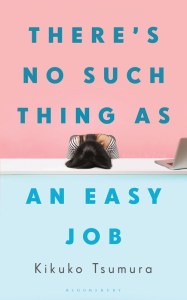 After a long period of neglect, I have been reading more books in translation recently, including some recently published titles. There’s No Such Thing as an Easy Job by Kikuko Tsumura has been translated from the Japanese by Polly Barton and sees an unnamed woman in her mid-30s walk into an employment agency looking for a job that has the following traits: it is close to her home, requires no reading or writing and preferably very little thinking. The book follows her attempts at five different roles: surveillance, recording voice ads for buses, writing fun facts to be printed on cracker wrappers, putting up posters and park maintenance. Tsumura wrote her debut novel after her own experience of job burnout and it captures a sense of listlessness in a way that will have you counting down the days until you are entitled to claim your own pension. With deadpan humour and a bit of magical realism, it ends up being a bit of an aimless novel overall, yet also quite thought-provoking about the meaning of job satisfaction, particularly in the context of workplace culture in Japan which is known for extreme presenteeism.
After a long period of neglect, I have been reading more books in translation recently, including some recently published titles. There’s No Such Thing as an Easy Job by Kikuko Tsumura has been translated from the Japanese by Polly Barton and sees an unnamed woman in her mid-30s walk into an employment agency looking for a job that has the following traits: it is close to her home, requires no reading or writing and preferably very little thinking. The book follows her attempts at five different roles: surveillance, recording voice ads for buses, writing fun facts to be printed on cracker wrappers, putting up posters and park maintenance. Tsumura wrote her debut novel after her own experience of job burnout and it captures a sense of listlessness in a way that will have you counting down the days until you are entitled to claim your own pension. With deadpan humour and a bit of magical realism, it ends up being a bit of an aimless novel overall, yet also quite thought-provoking about the meaning of job satisfaction, particularly in the context of workplace culture in Japan which is known for extreme presenteeism.
Three Books in Translation
Comments Off on Three Books in Translation
Filed under Books
Three Bluemoose Books
 Bluemoose Books is one of my favourite indie publishers and I have been reading some more of its titles over the past few weeks. Should We Fall Behind by Sharon Duggal has recently been featured on the BBC’s books programme Between The Covers and has deservedly won plaudits for its sensitive and non-judgemental portrayal of the most marginalised groups in society. Duggal’s second novel tells the story of Jimmy Noone who is homeless in an unnamed city and has been searching for his friend, Betwa, who grew up in the local area. He is seen as a threat by Ebele, a single mother who lives with her six-year-old daughter Tuli, while her landlord and employer, Nikos, who owns a furniture shop nearby thinks he is a nuisance. Jimmy does, however, generate more compassion from their neighbour, Rayya, who is a carer for her terminally-ill husband Satish. The way in which the characters’ backgrounds are slowly revealed is very effective, emphasising that ordinary people have extraordinary stories to tell, that actions are not all that they appear to be and how people can end up on completely different paths and become invisible to the rest of society. This is a perceptive and poignant novel and I look forward to reading more of Duggal’s work. Continue reading
Bluemoose Books is one of my favourite indie publishers and I have been reading some more of its titles over the past few weeks. Should We Fall Behind by Sharon Duggal has recently been featured on the BBC’s books programme Between The Covers and has deservedly won plaudits for its sensitive and non-judgemental portrayal of the most marginalised groups in society. Duggal’s second novel tells the story of Jimmy Noone who is homeless in an unnamed city and has been searching for his friend, Betwa, who grew up in the local area. He is seen as a threat by Ebele, a single mother who lives with her six-year-old daughter Tuli, while her landlord and employer, Nikos, who owns a furniture shop nearby thinks he is a nuisance. Jimmy does, however, generate more compassion from their neighbour, Rayya, who is a carer for her terminally-ill husband Satish. The way in which the characters’ backgrounds are slowly revealed is very effective, emphasising that ordinary people have extraordinary stories to tell, that actions are not all that they appear to be and how people can end up on completely different paths and become invisible to the rest of society. This is a perceptive and poignant novel and I look forward to reading more of Duggal’s work. Continue reading
Filed under Books
The Handmaid’s Tale and The Testaments by Margaret Atwood
 I first read The Handmaid’s Tale by Margaret Atwood about 10 years ago and recently reread it followed by the long-awaited sequel The Testaments. Atwood’s dystopian classic first published in 1985 depicts the Republic of Gilead, a totalitarian and patriarchal state created after the downfall of the United States some time in the 21st century. It is narrated by Offred, a handmaid who is forced to produce children for Commander Waterford and his wife Serena Joy.
I first read The Handmaid’s Tale by Margaret Atwood about 10 years ago and recently reread it followed by the long-awaited sequel The Testaments. Atwood’s dystopian classic first published in 1985 depicts the Republic of Gilead, a totalitarian and patriarchal state created after the downfall of the United States some time in the 21st century. It is narrated by Offred, a handmaid who is forced to produce children for Commander Waterford and his wife Serena Joy.
As a reread, ‘The Handmaid’s Tale’ was fresher in my mind than it would have been thanks to the recent television series which is a very faithful adaptation of the novel. I particularly admire Atwood’s skill at detailed world-building in relatively spare prose. Even though there isn’t a huge amount of description of what Offred’s surroundings look like or even much explanation about the creation of Gilead initially, Atwood paints a vivid and shocking portrait of this dystopian world, gradually building towards a dramatic conclusion. Continue reading
Filed under Books
Three Books About London
 The title of the book A Short History of London: The Creation of a World Capital by Simon Jenkins gives a fair warning to the reader that there is inevitably quite a lot left out of the city’s 2,000 year history in its 400 pages. The focus is very much on the architecture and planning of the city centre in the last century or so with a bit about its governance alongside this. As a lifelong Londoner, Jenkins is clearly passionate about his home city. He has witnessed a remarkable amount of change in his lifetime and doesn’t hold back on his forthright views about recent developments. Having already produced short histories of Europe and England, Jenkins is well-practised at the most important aspect of writing a deliberately short book which is that he writes with pace and is very good at conveying the general sweep of events succinctly in easily digestible chapters. Continue reading
The title of the book A Short History of London: The Creation of a World Capital by Simon Jenkins gives a fair warning to the reader that there is inevitably quite a lot left out of the city’s 2,000 year history in its 400 pages. The focus is very much on the architecture and planning of the city centre in the last century or so with a bit about its governance alongside this. As a lifelong Londoner, Jenkins is clearly passionate about his home city. He has witnessed a remarkable amount of change in his lifetime and doesn’t hold back on his forthright views about recent developments. Having already produced short histories of Europe and England, Jenkins is well-practised at the most important aspect of writing a deliberately short book which is that he writes with pace and is very good at conveying the general sweep of events succinctly in easily digestible chapters. Continue reading
Filed under Books
Three Crime Books I’ve Read Recently
 Your House Will Pay by Steph Cha is a novel about two families in Los Angeles – one Korean-American and one African-American. It is a fictionalised version of a real case in which Soon Ja Du, a Korean female convenience store owner, shot and killed a 15-year-old African-American girl called Latasha Harlins in 1991. Du was convicted of voluntary manslaughter but didn’t receive a jail sentence. In the novel, 15-year-old Ava Matthews is shot and killed by Jung-Ja Han who believed Ava was attempting to steal milk from her store. The narrative alternates between both families and the past and the present. Ava’s brother and cousin, Shawn and Ray, struggle to cope in the aftermath of Ava’s death while Jung-Ja changes her name to Yvonne Park and her daughter, Grace, grows up unaware of the incident until the past catches up with them. Cha takes great care to show the impact of events on both sides and the result is a powerful depiction of the background behind racial tensions in Los Angeles in the early 1990s and beyond. Continue reading
Your House Will Pay by Steph Cha is a novel about two families in Los Angeles – one Korean-American and one African-American. It is a fictionalised version of a real case in which Soon Ja Du, a Korean female convenience store owner, shot and killed a 15-year-old African-American girl called Latasha Harlins in 1991. Du was convicted of voluntary manslaughter but didn’t receive a jail sentence. In the novel, 15-year-old Ava Matthews is shot and killed by Jung-Ja Han who believed Ava was attempting to steal milk from her store. The narrative alternates between both families and the past and the present. Ava’s brother and cousin, Shawn and Ray, struggle to cope in the aftermath of Ava’s death while Jung-Ja changes her name to Yvonne Park and her daughter, Grace, grows up unaware of the incident until the past catches up with them. Cha takes great care to show the impact of events on both sides and the result is a powerful depiction of the background behind racial tensions in Los Angeles in the early 1990s and beyond. Continue reading
Filed under Books
Hungry by Grace Dent and Scoff by Pen Vogler
 Hungry by Grace Dent shares many thematic similarities with A Half-Baked Idea by Olivia Potts in that they are both memoirs about the joys of food, starting out in competitive careers in London and difficult family circumstances. While Potts’ memoir detailed her enrolment on the Cordon Bleu culinary school patisserie course after deciding not to pursue a career as a barrister following her mother’s unexpected death, Dent’s is about the childhood nostalgia of cheap beige comfort food in the 1980s, finding her feet as a journalist in her 2os and her father’s health problems including vascular dementia. Continue reading
Hungry by Grace Dent shares many thematic similarities with A Half-Baked Idea by Olivia Potts in that they are both memoirs about the joys of food, starting out in competitive careers in London and difficult family circumstances. While Potts’ memoir detailed her enrolment on the Cordon Bleu culinary school patisserie course after deciding not to pursue a career as a barrister following her mother’s unexpected death, Dent’s is about the childhood nostalgia of cheap beige comfort food in the 1980s, finding her feet as a journalist in her 2os and her father’s health problems including vascular dementia. Continue reading
Filed under Books
The Women’s Prize for Fiction Longlist 2021
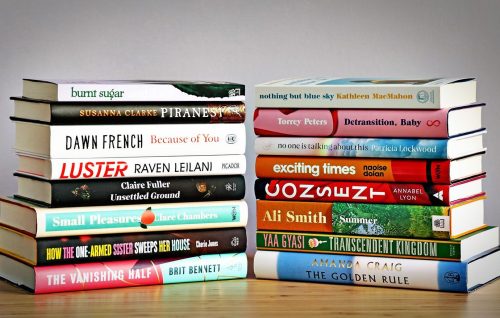
The Women’s Prize for Fiction longlist for 2021 was announced last Wednesday. The 16 titles are:
The Vanishing Half by Brit Bennett
Small Pleasures by Clare Chambers
Piranesi by Susanna Clarke
The Golden Rule by Amanda Craig
Exciting Times by Naoise Dolan
Burnt Sugar by Avni Doshi
Because of You by Dawn French
Unsettled Ground by Claire Fuller
Transcendent Kingdom by Yaa Gyasi
How the One-Armed Sister Sweeps Her House by Cherie Jones
Luster by Raven Leilani
No One Is Talking About This by Patricia Lockwood
Consent by Annabel Lyon
Nothing But Blue Sky by Kathleen MacMahon
Detransition, Baby by Torrey Peters
Summer by Ali Smith Continue reading
Filed under Books
More Books I Read In February
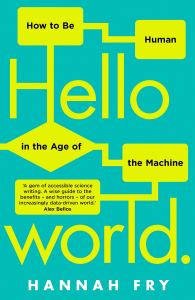 Hello World by Hannah Fry, subtitled ‘How to Be Human in the Age of the Machine’ looks at the role of algorithms in modern life, from our everyday internet use to the justice system to creating works of art. Most of the discussion around algorithms tends to focus on the negative impact they can have with sat navs sending drivers off the edge of a cliff and data privacy concerns being two of the most well-known examples. Fry also looks at the positive benefits of algorithms as they are undoubtedly useful in research contexts such as monitoring cell patterns in order to diagnose cancer earlier. The real-world examples of how humans interact with algorithms are concisely written and this is an engaging popular science book which is straightforward enough for a layperson to grasp as an introduction to a complex topic. Continue reading
Hello World by Hannah Fry, subtitled ‘How to Be Human in the Age of the Machine’ looks at the role of algorithms in modern life, from our everyday internet use to the justice system to creating works of art. Most of the discussion around algorithms tends to focus on the negative impact they can have with sat navs sending drivers off the edge of a cliff and data privacy concerns being two of the most well-known examples. Fry also looks at the positive benefits of algorithms as they are undoubtedly useful in research contexts such as monitoring cell patterns in order to diagnose cancer earlier. The real-world examples of how humans interact with algorithms are concisely written and this is an engaging popular science book which is straightforward enough for a layperson to grasp as an introduction to a complex topic. Continue reading
Filed under Books
Bookworm by Lucy Mangan and The Bookseller’s Tale by Martin Latham
 Bookworm by Lucy Mangan is a memoir of childhood reading, from her earliest memories as a small child reading ‘The Very Hungry Caterpillar’ by Eric Carle, to her secondary school years in the late 1980s when Judy Blume books and the Sweet Valley High series were at the height of their popularity. Born in 1974 to northern Catholic parents, Mangan grew up in south east London and was a voracious reader from the start. Even though my formative years of childhood reading occurred over a decade later than Mangan’s, there is a significant amount of overlap in our literary diets. This isn’t very surprising given that Enid Blyton, Roald Dahl and other staples have remained so popular over several generations, and it means that most readers will be familiar with much of what Mangan reminisces about here too. For the most part, we also have fairly similar taste in books – like Mangan, I prefer stories with fantasy elements to be at least partly grounded in the real world, and neither of us are great lovers of poetry (“All that feeling”). The exceptions are the ballet and pony stories favoured by Mangan and the late arrival of a series of books about a certain boy wizard which was a big part of my childhood reading.
Bookworm by Lucy Mangan is a memoir of childhood reading, from her earliest memories as a small child reading ‘The Very Hungry Caterpillar’ by Eric Carle, to her secondary school years in the late 1980s when Judy Blume books and the Sweet Valley High series were at the height of their popularity. Born in 1974 to northern Catholic parents, Mangan grew up in south east London and was a voracious reader from the start. Even though my formative years of childhood reading occurred over a decade later than Mangan’s, there is a significant amount of overlap in our literary diets. This isn’t very surprising given that Enid Blyton, Roald Dahl and other staples have remained so popular over several generations, and it means that most readers will be familiar with much of what Mangan reminisces about here too. For the most part, we also have fairly similar taste in books – like Mangan, I prefer stories with fantasy elements to be at least partly grounded in the real world, and neither of us are great lovers of poetry (“All that feeling”). The exceptions are the ballet and pony stories favoured by Mangan and the late arrival of a series of books about a certain boy wizard which was a big part of my childhood reading.
Filed under Books
Agent Sonya by Ben Macintyre and Shadow State by Luke Harding
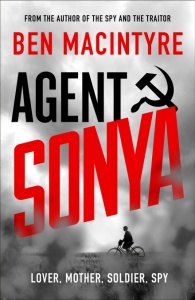 Agent Sonya by Ben Macintyre is an account of the life of Ursula Kuczynski, born to a German Jewish family in 1907 who later became a Communist spy codenamed Sonya. She moved to Shanghai with her architect husband Rudi in 1930 and was recruited by Richard Sorge at the end of that year when she was six months pregnant with her first child. Over the next two decades, she rose to the rank of colonel in the Red Army, lived in Poland, Switzerland and the Cotswolds in England, contributed towards a plot to assassinate Adolf Hitler and was later the handler of the Manhattan Project nuclear scientist Klaus Fuchs, passing atomic secrets to the Soviet Union and influencing the path of the Cold War. Her spy career was so successful that her request to take early retirement was granted – an exceptionally rare honour. Continue reading
Agent Sonya by Ben Macintyre is an account of the life of Ursula Kuczynski, born to a German Jewish family in 1907 who later became a Communist spy codenamed Sonya. She moved to Shanghai with her architect husband Rudi in 1930 and was recruited by Richard Sorge at the end of that year when she was six months pregnant with her first child. Over the next two decades, she rose to the rank of colonel in the Red Army, lived in Poland, Switzerland and the Cotswolds in England, contributed towards a plot to assassinate Adolf Hitler and was later the handler of the Manhattan Project nuclear scientist Klaus Fuchs, passing atomic secrets to the Soviet Union and influencing the path of the Cold War. Her spy career was so successful that her request to take early retirement was granted – an exceptionally rare honour. Continue reading
Filed under Books
Three Books By Indie Publishers
 The last ten months or so have been very tough for the publishing industry in general, and particularly challenging for small indie presses who have still succeeded in bringing brilliant new books in to the world during a pandemic no less. One of those is Exit Management by Naomi Booth which was published by Dead Ink Books last summer. Originally from the north of England, Lauren works at a City firm as a graduate HR executive and specialises in “exit management”, otherwise known as firing people in less corporate terms. She is very ambitious about climbing the property ladder, even in a city where she discovers early on that a bedsit in Deptford will always be advertised as a “luxury studio in outer Greenwich”. Callum is a young man in his twenties who lives with his parents in Croydon and lands a job at GuestHouse, a company which finds elite temporary residences in London for the super-rich. Callum forms a close bond with one of his clients, József, a terminally ill elderly man who came to live in England from Hungary as a refugee in 1956. When Callum and Lauren meet by chance outside József‘s home in Elgin Mews, Lauren assumes that Callum owns the property, and the lives of the three characters become drawn together in unexpected ways. I think the characterisation is particularly strong in this novel, as it explores Lauren and Callum’s relationship in more interesting ways than just depicting their status as millennials inevitably struggling to get by in London. I look forward to reading Booth’s eco-horror debut novel ‘Sealed’. Continue reading
The last ten months or so have been very tough for the publishing industry in general, and particularly challenging for small indie presses who have still succeeded in bringing brilliant new books in to the world during a pandemic no less. One of those is Exit Management by Naomi Booth which was published by Dead Ink Books last summer. Originally from the north of England, Lauren works at a City firm as a graduate HR executive and specialises in “exit management”, otherwise known as firing people in less corporate terms. She is very ambitious about climbing the property ladder, even in a city where she discovers early on that a bedsit in Deptford will always be advertised as a “luxury studio in outer Greenwich”. Callum is a young man in his twenties who lives with his parents in Croydon and lands a job at GuestHouse, a company which finds elite temporary residences in London for the super-rich. Callum forms a close bond with one of his clients, József, a terminally ill elderly man who came to live in England from Hungary as a refugee in 1956. When Callum and Lauren meet by chance outside József‘s home in Elgin Mews, Lauren assumes that Callum owns the property, and the lives of the three characters become drawn together in unexpected ways. I think the characterisation is particularly strong in this novel, as it explores Lauren and Callum’s relationship in more interesting ways than just depicting their status as millennials inevitably struggling to get by in London. I look forward to reading Booth’s eco-horror debut novel ‘Sealed’. Continue reading
Filed under Books
My Most Anticipated Books of 2021
There are a lot of new books coming in 2021. Here are the titles I am looking forward to reading the most, although I probably won’t get round to all of them this year. All publication dates where known apply to the United Kingdom only.
High-profile debut novels out in early 2021 include Luster by Raven Leilani and No One Is Talking About This by Patricia Lockwood whose memoir Priestdaddy I reviewed last month. Several of the books I will be looking out for are second novels by authors who have written impressive debuts. Hot Stew by Fiona Mozley is set in modern-day Soho in London and sounds like a real departure from the Booker Prize-shortlisted Elmet. The High House by Jessie Greengrass is the second novel by the author of Sight. It addresses climate change and is out in April. Panenka by Ronan Hessian sees the author of the word-of-mouth success Leonard and Hungry Paul return with his new novel in May about a man who is living with mistakes he made in the past. Out in February, Light Perpetual by Francis Spufford tells the possible stories of five children if they hadn’t been killed by a V2 bomb in London in 1944 – a very different concept and setting from the 18th century New York depicted in his debut Golden Hill.
Filed under Books
My Books of the Year 2020
There are lots of reasons why 2020 has been an unusual year. One of them is that several books I have both read and enjoyed have won major literary prizes this year – more often than not, my longlist or shortlist preferences don’t get as far as taking the big cheques home with them. However, Shuggie Bain by Douglas Stuart won the Booker Prize this year – a debut novel about a young boy growing up in 1980s Glasgow (and I’m still feeling smug about including it in my predictions post back in July before it was even longlisted). Hamnet by Maggie O’Farrell won the Women’s Prize for Fiction for its moving portrayal of the death of William Shakespeare’s young son. And One Two Three Four by Craig Brown was awarded the Baillie Gifford Prize for Non-Fiction – a brilliantly original and comic biography of the Beatles told in 99 short chapters. Continue reading
Filed under Books
Non-Fiction I Have Read Recently: Part Two
 The Fragments of my Father by Sam Mills is a memoir about the author’s experience of being a carer for both of her parents in different circumstances. Her father has had mental health problems including schizophrenia since she was a child. Her mother was later diagnosed with cancer and died in 2012, after which Mills became the main carer for her father. Mills interweaves a bit of literary biography of Virginia and Leonard Woolf and Zelda and F. Scott Fitzgerald and how their relationships were shaped by caring responsibilities. I might have expected the literary biography elements to feel like unnecessary padding to the book, but Mills makes a convincing case that Leonard has sometimes been unfairly portrayed as a controlling husband when Virginia’s illness meant that he had to make difficult decisions in her interests in his role as her carer. Mills also explores the impact of being a carer on her own creative life as a novelist as well as setting up and running the indie publisher Dodo Ink. She is very frank about the guilt she feels when taking even the briefest break away from her caring duties and how this has affected her relationships with other people. With around 6.5 million unpaid carers in the UK alone, ‘The Fragments of my Father’ makes an exceptionally strong case towards the need to improve financial and emotional support for those making personal sacrifices every day in order to provide care for their loved ones.
The Fragments of my Father by Sam Mills is a memoir about the author’s experience of being a carer for both of her parents in different circumstances. Her father has had mental health problems including schizophrenia since she was a child. Her mother was later diagnosed with cancer and died in 2012, after which Mills became the main carer for her father. Mills interweaves a bit of literary biography of Virginia and Leonard Woolf and Zelda and F. Scott Fitzgerald and how their relationships were shaped by caring responsibilities. I might have expected the literary biography elements to feel like unnecessary padding to the book, but Mills makes a convincing case that Leonard has sometimes been unfairly portrayed as a controlling husband when Virginia’s illness meant that he had to make difficult decisions in her interests in his role as her carer. Mills also explores the impact of being a carer on her own creative life as a novelist as well as setting up and running the indie publisher Dodo Ink. She is very frank about the guilt she feels when taking even the briefest break away from her caring duties and how this has affected her relationships with other people. With around 6.5 million unpaid carers in the UK alone, ‘The Fragments of my Father’ makes an exceptionally strong case towards the need to improve financial and emotional support for those making personal sacrifices every day in order to provide care for their loved ones.
Filed under Books
Non-Fiction I Have Read Recently: Part One
 In between books from the Young Writer of the Year shortlist, I have been reading a lot of non-fiction during the November lockdown. The Cubans by Anthony DePalma is a narrative non-fiction account of the everyday lives of Cuban citizens in recent decades. It follows a handful of families based in the Havana suburb of Guanabacoa including an artist called Arturo, an engineer and company vice-president called Cart, and Jorge, who lost several close relatives when the 13 de marzo tugboat sank off the coast as dozens of Cubans attempted to leave for the United States. DePalma explains he has “set out not to bash the Cuban regime but to give voice to individuals whose lives have been overshadowed by those towering historical figures”. It is certainly true that Fidel Castro is instantly recognisable outside Cuba, whereas the dire economic consequences of the Special Period in the early 1990s and the reality of the restrictions placed on Cuban citizens are not as widely known or understood. This is reflected in the range of English-language books about Cuba which almost always focus on the country’s leadership rather than modern Cuba more generally, and this excellent account is a step in the right direction towards redressing that balance. Continue reading
In between books from the Young Writer of the Year shortlist, I have been reading a lot of non-fiction during the November lockdown. The Cubans by Anthony DePalma is a narrative non-fiction account of the everyday lives of Cuban citizens in recent decades. It follows a handful of families based in the Havana suburb of Guanabacoa including an artist called Arturo, an engineer and company vice-president called Cart, and Jorge, who lost several close relatives when the 13 de marzo tugboat sank off the coast as dozens of Cubans attempted to leave for the United States. DePalma explains he has “set out not to bash the Cuban regime but to give voice to individuals whose lives have been overshadowed by those towering historical figures”. It is certainly true that Fidel Castro is instantly recognisable outside Cuba, whereas the dire economic consequences of the Special Period in the early 1990s and the reality of the restrictions placed on Cuban citizens are not as widely known or understood. This is reflected in the range of English-language books about Cuba which almost always focus on the country’s leadership rather than modern Cuba more generally, and this excellent account is a step in the right direction towards redressing that balance. Continue reading
Filed under Books
The Young Writer of the Year Award Shortlist 2020
 I have been following the Sunday Times/University of Warwick Young Writer of the Year Award since its relaunch in 2015 and shadowed the prize in 2017. This year’s shortlist was announced on Sunday 1st November and consists of two poetry collections, two novels and one memoir. The titles are:
I have been following the Sunday Times/University of Warwick Young Writer of the Year Award since its relaunch in 2015 and shadowed the prize in 2017. This year’s shortlist was announced on Sunday 1st November and consists of two poetry collections, two novels and one memoir. The titles are:
Surge by Jay Bernard
Inferno by Catherine Cho
Exciting Times by Naoise Dolan
Tongues of Fire by Sean Hewitt
Nightingale by Marina Kemp
The poetry collections include Tongues of Fire by Sean Hewitt which draws on Hewitt’s time in Sweden, a translation of the Irish legend of Buile Suibhne, and his father’s terminal illness. Rooted in the natural world, these poems are very immersive, and deal with themes of identity and loss. Surge by Jay Bernard has already been shortlisted for several other major awards (Costa, Forward, Dylan Thomas and T. S. Eliot). It focuses on the New Cross house fire in south-east London in January 1981 which killed 13 black teenagers who were celebrating a birthday party. The cause has never been fully established but it is possible that the fire was started deliberately in a racist attack. In poems such as ‘Sentence’, Bernard explores parallels between the New Cross fire and the grief surrounding more recent tragedies such as the Grenfell Tower fire and the Windrush scandal. I don’t read poetry very often, but I could see ‘Surge’ being a potential winner with its thoughtful exploration of a powerful central theme.
Filed under Books
Four Books From The Booker Prize 2020 Longlist
I have read four books on this year’s Booker Prize longlist so far. All four are debut novels – there are eight in total on the 13-strong longlist – and two of them have made the shortlist.
 Such A Fun Age by Kiley Reid is about a young African-American woman, Emira, who is accused of abducting the white toddler she is looking after in an upmarket grocery store in Philadelphia. The toddler’s mother, Alix Chamberlain, is a wealthy white social media influencer who is at pains to show Emira how “woke” she is, lacking the self-awareness to realise that her attempts to be more progressive end up becoming the total opposite, and often result in her becoming more controlling and insecure. After the incident in the grocery store, Emira starts a relationship with Kelley Copeland, a white man who has a connection with Alix’s past. The novel is a slow-burn after the initial confrontation scene and the structure is a bit all over the place, but overall, ‘Such A Fun Age’ is subtly written with a great sense of irony and skewers “white saviour” hypocrisy very effectively. Continue reading
Such A Fun Age by Kiley Reid is about a young African-American woman, Emira, who is accused of abducting the white toddler she is looking after in an upmarket grocery store in Philadelphia. The toddler’s mother, Alix Chamberlain, is a wealthy white social media influencer who is at pains to show Emira how “woke” she is, lacking the self-awareness to realise that her attempts to be more progressive end up becoming the total opposite, and often result in her becoming more controlling and insecure. After the incident in the grocery store, Emira starts a relationship with Kelley Copeland, a white man who has a connection with Alix’s past. The novel is a slow-burn after the initial confrontation scene and the structure is a bit all over the place, but overall, ‘Such A Fun Age’ is subtly written with a great sense of irony and skewers “white saviour” hypocrisy very effectively. Continue reading
Filed under Books

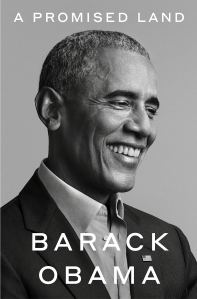








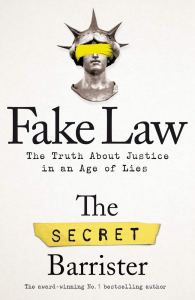


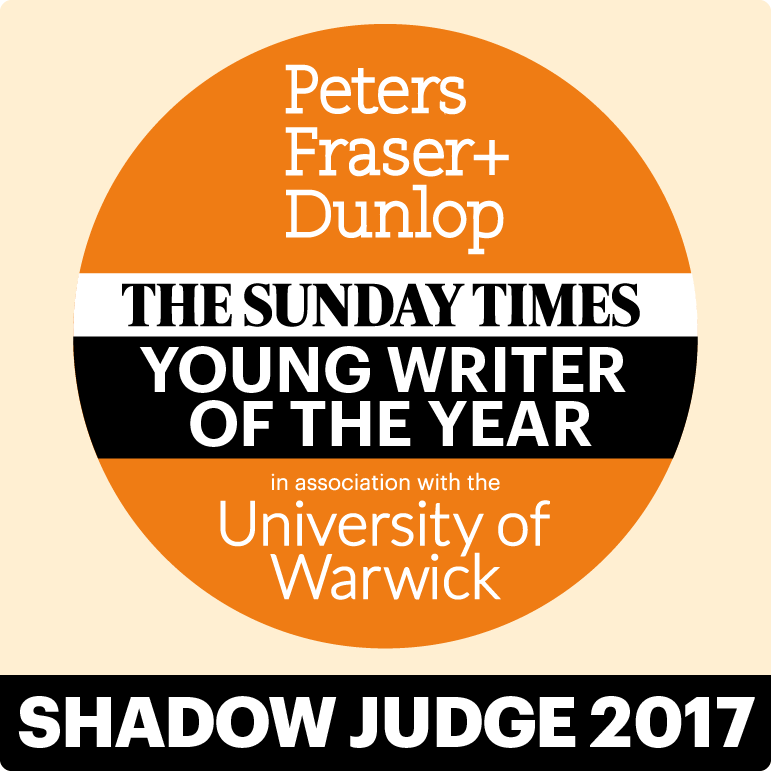

You must be logged in to post a comment.